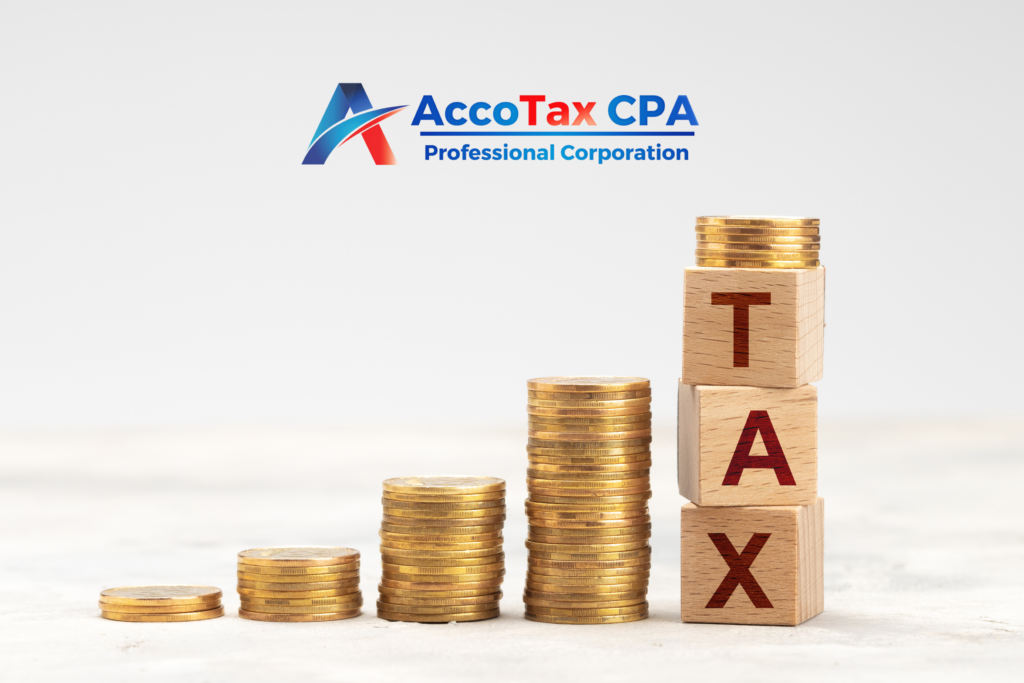Corporate business owners have great flexibility in making decisions about their remuneration from the company. It’s important that decisions about remuneration be made before year end, as well as considered during the business’s financial statement and tax return finalization processes. Changing federal and provincial personal and corporate tax rates have made remuneration planning more important than ever; the plan should be re-evaluated each year based on the specific needs of the business owner and be part of a holistic financial plan.
In determining the optimal salary-dividend mix, consider the following:
- in general, if the owner-manager did not need the money, it could be left in the corporation to grow subject to tax at corporate tax rates, which for active income are less than personal tax rates. However, under the passive investment income rules (see above), this strategy is no longer effective with respect to passive income that exceeds $50,000 per year, effective for taxation years beginning after 2018.
- Even if the owner-manager does not need the money, it may make sense to pay sufficient salary or bonus to create enough earned income to maximize their registered retirement savings plan (RRSP) deduction next year.
- Bonuses can be accrued and be deductible by the company in 2023, but don’t have to be included in the business owner’s personal income until paid in 2024 (provided they are paid within 180 days after the corporation’s year end).
- Pay sufficient salary or bonus to eliminate or reduce a personal minimum tax liability.
- Payment of salary or bonus may increase provincial payroll tax.
- If you anticipate that the cumulative net investment loss (CNIL) rules will affect your ability to claim your remaining capital gains exemption, pay yourself dividends rather than salary.
- Paying dividends may occasionally be a tax-efficient way of getting funds out of the company. Capital dividends are completely tax free when received by Canadian-resident individual shareholders, eligible dividends are subject to a preferential tax rate and taxable dividends generate a dividend refund in a corporation with a refundable dividend tax account. A review of the company’s tax attributes and relevant personal tax rates in the shareholder’s province of residence will identify whether tax-efficient dividends can be paid.
- Dividends do not represent earned income for the purpose of creating RRSP contribution room. Earned income is also required for other personal tax deductions such as child care and moving expenses.
- Return paid-up capital, or pay down shareholder advances, as an alternative to paying taxable dividends or salary.
- Consider employing your spouse or partner and/or your children to take advantage of income-splitting opportunities. Their salaries must be reasonable for the work they perform. Salaries are not subject to the TOSI rules.
Corporate loans
- If you borrow funds from your corporation, either interest free or at a low rate of interest, you may have a taxable benefit for imputed interest on the loan, reduced by any interest payments you make by January 30 of the following year.
- The amount of imputed interest is computed at prescribed rates on the outstanding loan for the period. In 2023, the prescribed rate was 4% in Q1 and 5% in Q2, Q3 and Q4.
- To avoid an income inclusion for the entire amount of the loan, you should repay the loan by the end of the corporation’s taxation year following the year the loan was made. If the entire amount of the loan is included in income, the imputed interest benefit does not apply.
- If a shareholder repays a loan that was previously included in income under these rules, the shareholder is entitled to a deduction in the year of repayment to the extent of the amount repaid, provided the repayment is not made as part of a series of loans or other transactions and repayments.
- Housing loans, car loans and funds borrowed to acquire newly issued shares of the company may not be subject to this income inclusion rule if received by virtue of employment.
- Consider holding investment assets personally so that the corporation maintains its small business corporation status. This will help ensure the shares are eligible for your remaining capital gains exemption by potentially reducing your personal CNIL account.
- If you take out a loan for the purpose of earning business or property income, the interest paid and the imputed interest benefit for low- or no-interest loans are deductible for tax purposes.
We at AccoTax CPA Professional Corporation help our small business owner-managers understand and plan their remuneration in the most tax-efficient ways, while they achieve their personal goals and grow their business. From incorporating your new business to providing complete bookkeeping, accounting and tax advisory services, we offer a comprehensive solution for your business and personal tax needs while you focus on growing your business. Contact us today to book an appointment and we’d be happy to help.
Corporation (small business) tax filing
Download our corporate tax checklist to guide you to provide us the documents required for your business tax filings.



